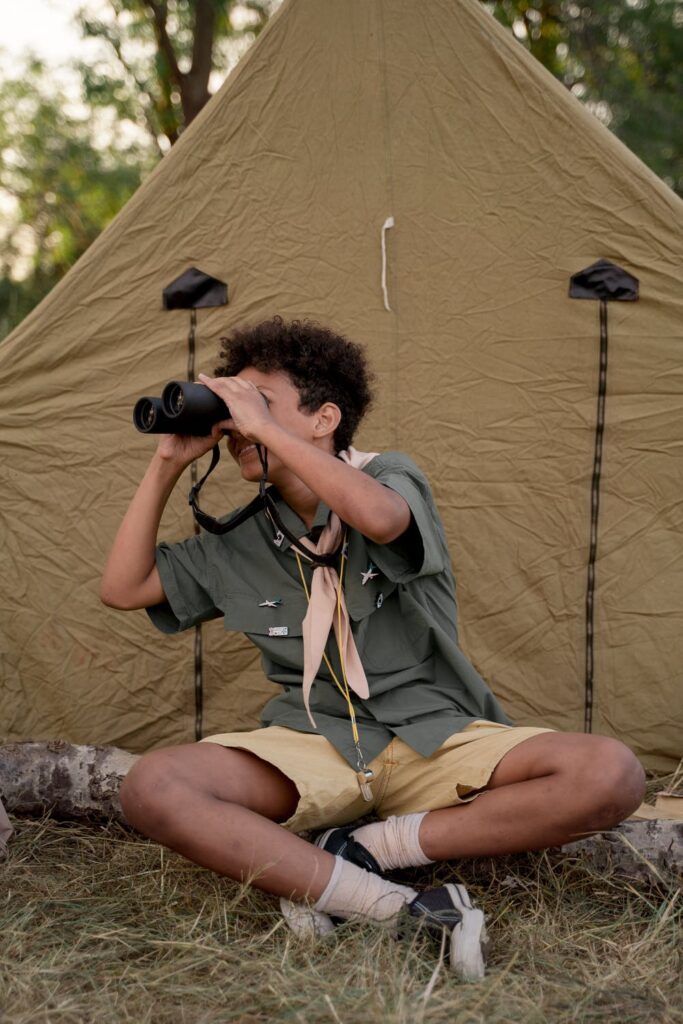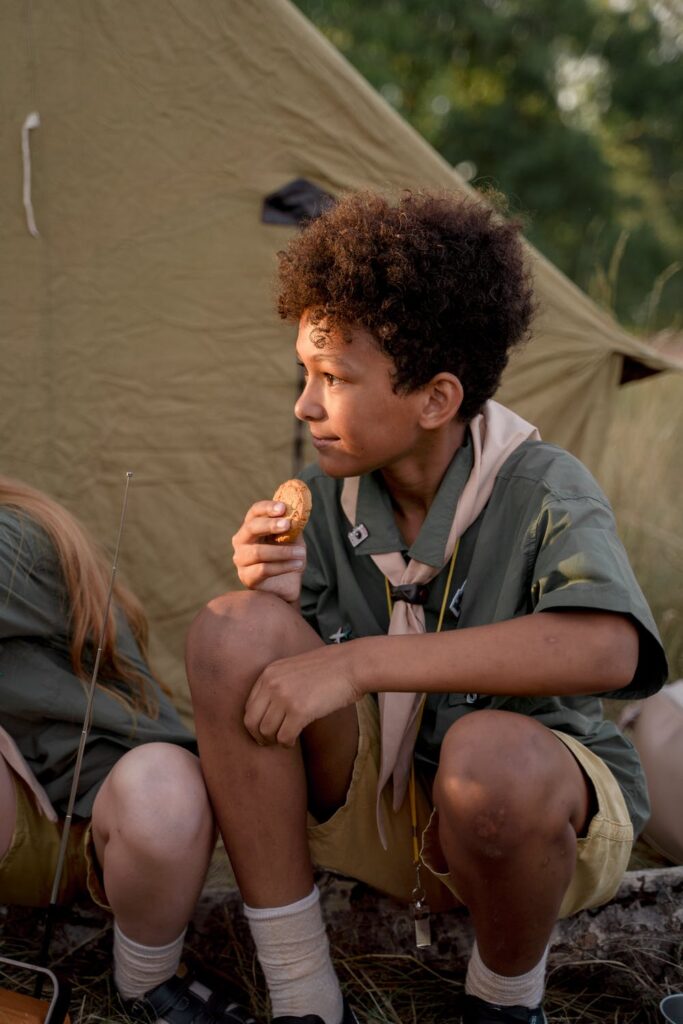The first time you took your child hunting, was it a success, or were they too young to stay quiet and patient?
It might not have been the best experience for either of you.
The more expensive or complicated the activity is, the less likely they will want to do it. This means that many parents don’t take their children hunting with them on weekends because of these reasons.
But with these tips, you’ll be able to take your children out hunting without them getting bored or frustrated! So read on and get ready for an excellent day of bonding and fun in the outdoors.
Table of Contents
Top 14 Tips for Taking Kids Hunting
1. Make it a priority
Plan your hunt with your children in mind. Make time, work out a schedule and mark the dates on your calendar. For example, some children only have patience for an hour while others can last a few hours.
Amy suggests that if you make it a priority to go hunting together at least once or twice a month, everyone will look forward to it! As days get closer, talk about what you’ll be doing and where you’re going – new experiences are always exciting!
2. Get organized
As soon as possible, start planning your next hunting excursion with the kids! You should plan who is going to watch them so that everyone gets enough sleep the night before and has something healthy for breakfast. Make sure everyone has dressed appropriately and bring snacks, water, and sunscreen for everyone!
3. Plan the hunt
Set up a plan with all members of your hunting party ahead of time. You’ll want to discuss where you’ll meet once you’re in the middle of the woods, how long you’ll be out there together, who brings what equipment (gloves maybe?), and when it’s time to go home!
It might seem unnecessary but it will prevent arguments later on about whose fault it was that someone forgot something important or went home too early – especially if they are tired or hungry!
4. Prepare them
Children love adventures- even more so when they know what to expect. So, it is crucial to describe the area you are going to hunt, what you’ll do there, and the equipment you’ll need to bring.
You can show a map of your route if that will help them understand better where you’re going and why – for example, that boat ride might be their first time on a lake!
5. Bring something
Bring a new toy or item with you every time you go hunting. This will awaken children’s curiosity and encourage them to ask questions about nature. In addition, it is an excellent way for kids to learn about hunting without being scared.
They can see how real it really is when they have tangible items in front of them so bring binoculars, fishing poles, etc… As soon as possible, start teaching your children how to use these items! Check our Collections.
6. Dress right
Dress appropriately for the season and the weather forecast. Hunting in cold weather might not be that much fun but dressing warm will keep you both happy.
Try to dress your kids in layers so they can easily take something off if they’re getting too hot or put something on if they need to! Make sure everyone has comfortable shoes, too, especially if you will be walking for longer than usual or climbing up hills to spot game – good boots are an absolute must!
7. Get them excited

It’s very important to make your child excited about your upcoming hunting trip. If you go out every time without showing enthusiasm then it’ll be even more difficult to convince them that this is a fun activity.
They’ll realize that you’re going to work and they will most likely reject the idea of going with you if it doesn’t sound like fun! So get them excited about going out in nature, seeing animals, and everything else the great outdoors has to offer!
8. Know their limits
Take into account your children’s age, energy level, and what kind of activities they enjoy before planning your hunt.
For example, babies won’t be able to hike from sunrise to sunset or sit still for hours while looking through binoculars so plan a short trip where they can move around a little bit – maybe there’s a playground nearby where people go birdwatching!
Also, know when they have reached their limit – you might think that they can go on for hours but even the most enthusiastic child has a limit! If you see your child is tired, take them home – they’ll still enjoy sleeping in their bed!
Must Read: Home School Bubble
9. Bring lots of snacks

You never know how long you might be out there so make sure everyone has the energy to keep going without getting cranky.
There are plenty of granola bars and dried fruit which will give kids enough energy to hike around for hours (or at least pretend to…). Just make sure that everything you bring with you is healthy, or it’ll defeat the purpose!
10. Take breaks
Just like adults need breaks, children need restful moments throughout the day too. The best place for a break is in a forest, where it’s nice and quiet. I like to sit on a rock and just gaze at the surroundings while eating my snack – you’ll be surprised how much this will help the kids relax and stay happy!
11. Play games
There are plenty of fun games that can be played anywhere in nature. If your child tends to get bored easily then bring their favorite things to play with, such as dolls or action figures for boys and coloring books and crayons for girls.
Also, there is always good old hide-and-seek, tagging, or even tag rugby if everyone’s feeling enthusiastic enough! Remember to only bring items that won’t attract animals, though…
12. Don’t chase or force anything
If your kid wants something, give it to them right away. However, if they don’t want to go somewhere or see something, let them pass by without forcing them.
This is not only important because it teaches children to respect others but also because kids might be afraid of some animals and situations out there and it’s better to let them take their time and explore everything at their own pace.
13. Keep an eye on the weather forecast
This is very important! If there is a storm coming, don’t go out to hunt because you’ll be in danger too. It’s also much better if kids can experience nature in the sunshine so plan your trip accordingly – unless they absolutely want to go hunting when it’s raining…
Even though it might not seem like a huge deal, having bad weather will ruin everyone’s day and that just defeats the purpose of going hunting in the first place.
14. Watch where you walk
Many people don’t realize that even in national parks, certain areas aren’t safe for humans – usually because there are underground dens or nests of wild animals that you should avoid. It doesn’t have to be anything dangerous, though – just watch where your kids walk because there might be ants’ nests under the rocks!
Read: Birthday Images for Daughter
Final Words
The outdoors is a wonderful place for kids and adults alike to bond, learn about nature, and just enjoy their time. However, some safety precautions should be taken into account before heading out on your next hunting trip with the family.
We hope these 14 tips will help make your next excursion more enjoyable by taking care of all the little details beforehand! If you have any questions or concerns at all don’t hesitate to get in touch – we’re always happy to hear from our readers and can offer advice based on our experiences. Have fun exploring nature this season!













